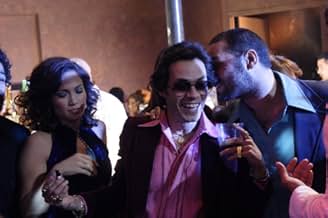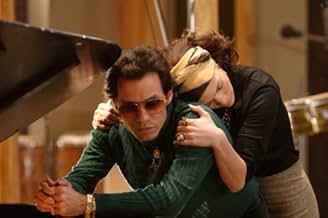In 1963, Hector Perez was already a promising young singer in his native Puerto Rico when, at the age of seventeen, he moved to New York City to try and make a name for himself as a performer there. In no time flat, he was playing in clubs, had signed a lucrative recording contract with the Latin-flavored Fania Records, and had changed his name to the far more exotic-sounding Hector Lavoe. From the mid-1960s to his death from AIDS in 1993, Lavoe was an international sensation who helped to popularize the musical style known as "Salsa." But, as with most artists, he lived a life of self-destructive self-indulgence, marked by serial philandering and hardcore drug abuse. He also had a volatile relationship with "Puchi," the Bronx girl who became his wife and who narrates "El Cantante," the glossy movie about his life.
Despite the novelty of the milieu and an undeniable sincerity on the part of everyone involved in its production, "El Cantante" remains doggedly conventional, lackluster and superficial in its treatment of the kind of material with which we are all too familiar from previous biopics that have chronicled the rise and fall of artists of all categories and stripes. Marc Antony brings a certain ferocity and depth to his portrayal of the struggling celebrity, but real-life wife Jennifer Lopez is all fluttery overacting as the woman who stood by her man through good times and bad (mostly bad). The music is enjoyable, but I'm afraid we've all been down this road so many times before that "El Cantante" fails to stir either our passions or our sympathy for the sadly benighted couple and all that they're going through. You'd be better off buying the albums instead.



























